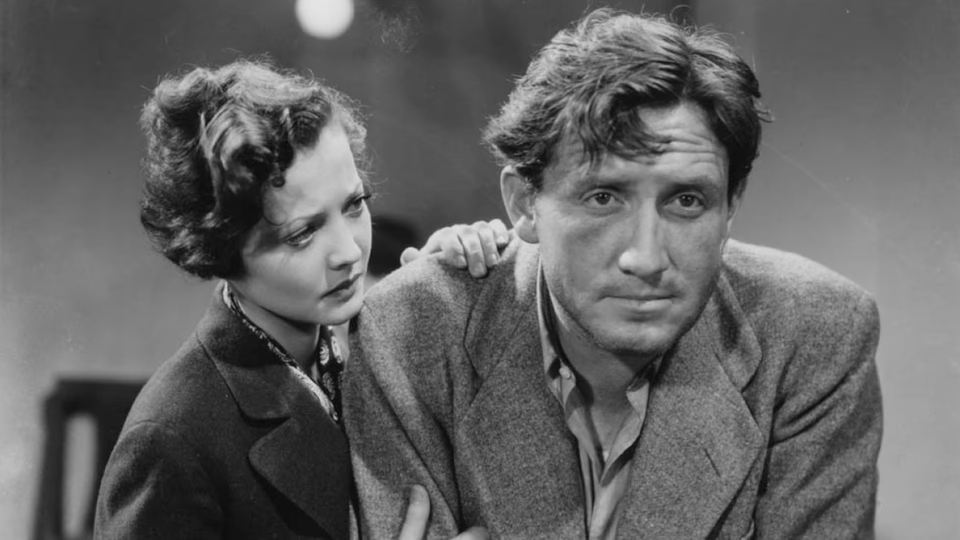Fury

Spencer Tracy plays a filling station owner driving west from Chicago to reunite with his fiancée, played by top-billed Sylvia Sydney. He camps overnight outside a small town. The next morning, a deputy stops him on the road. The deputy—played by Walter Brennan in a chilling performance—spies salted peanuts and hauls Tracy in for questioning. Questioning leads to detention. Soon, the town’s convinced Tracy is part of a recent child kidnapping. The citizens riot and burn the jail with Tracy trapped inside.
Such a great setup. But it’s downhill from here. Beginning with Sydney throwing an over-emotive hissy when she can’t get to the town holding Tracy. When she arrives, she rushes to the jail as though she’s never run a step in her life. Limbs flailing, seeming on the perpetual verge of tripping, the inanity ruins the scene’s tension.
Then the head-scratching plot begins. Sydney goes catatonic, and thus can’t identify anyone responsible for Tracy’s death. Except Tracy’s not dead, he survived and wants vengeance. But rather than kill the folks responsible himself, Tracy’s plan involves hiding out letting them stand trial for his death, which—if found guilty—would mean their deaths.
Even more inane, his brothers and Sydney get cold feet about helping. Sure, these people tried to kill Tracy. Some threw dynamite. Some held their babies up to watch the jail burn. But they’re good people and deserve a second chance. Or something.
By now, the film had lost me. I appreciated the early cynicism. There’s a biting scene where the governor’s chief advisor recalls the national guard, pointing out the potential damage to the governor’s approval ratings. Then when the law arrives, the rioters scatter like cockroaches in the light. But it’s all wasted on a third act that lacks payoff and sense.
Indeed, the ending bears evidence of reshoots, with Tracy’s hair changing between shots, some of which look as though he’s performing in front of a rear projection.